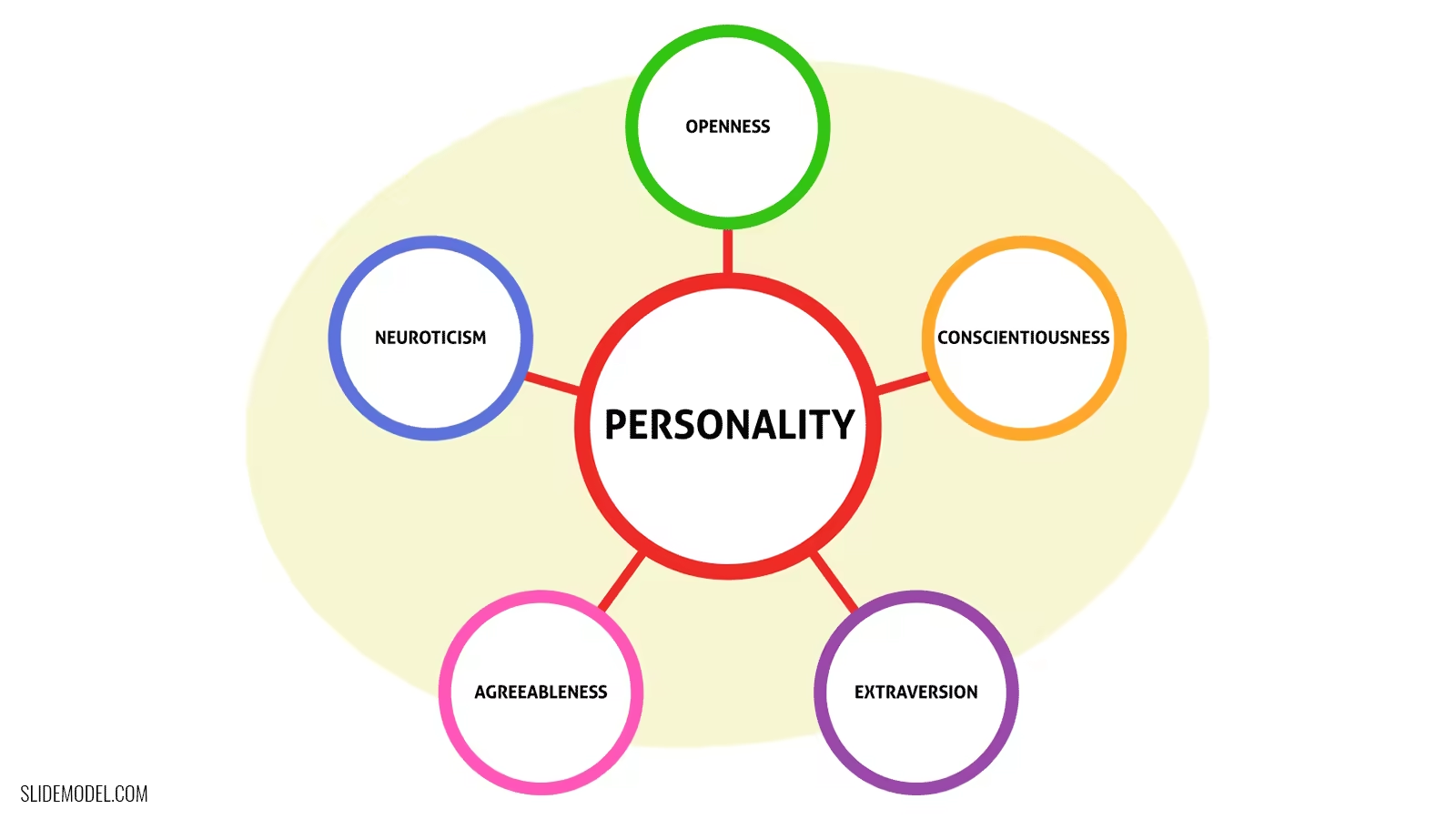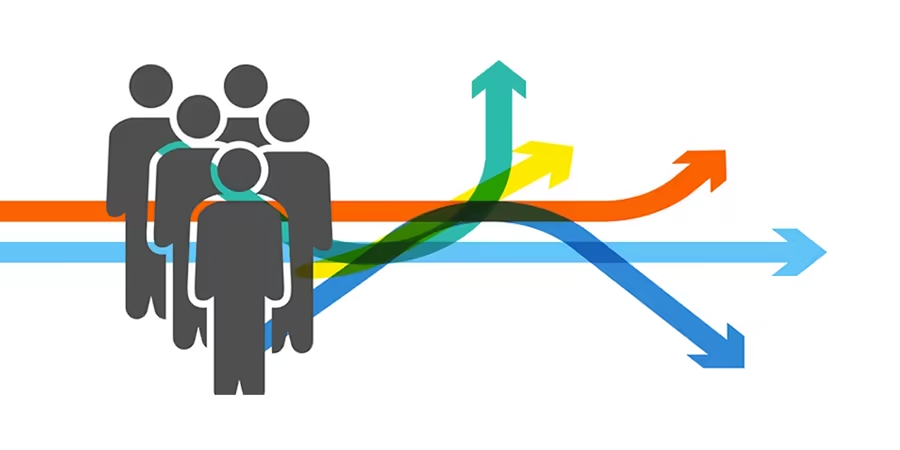When choosing which career path to make, a lot of factors should come into consideration. One of them is whether you'll be a good fit for the job because of your personality type. Corr & Matthews (2009) define personality as the characteristic set of behaviors, cognitions, and emotional patterns that evolve from biological and environmental factors. Each individual possesses unique characteristics that differentiate them from others. These characteristics play a part in determining the success one is to have in a job. This article will highlight why is important for one to consider their personality when choosing a career.
What is a career path?
Doyle (2020) defines a career path as a sequence of jobs that leads to your immediate and more permanent career goals. It is a series of jobs one has to pass through to reach their ultimate dream job. Career paths tend to result in vertical growth, moving from entry-level to management positions, but they can also include lateral moves in which an individual maintains similar roles across disparate industries.
Individuals can best navigate their career pathways by creating career plans to map out relevant career choices. Career plans include short and long-term goals that help an individual reach their ideal career while career clusters contain groups of occupations and industries that share common features. Career clusters can be used to help individuals understand the skills and knowledge that they need to develop to be successful within their chosen careers.
Related: 10 Questions to Ask Yourself Before Deciding on a Career Path
Types of Career Paths
There are two distinct types of career paths. Career progression can either be through the industry one operates in or through the organization. When one moves to a different organization after being presented with an opportunity, this is known as following the industrial career path. In that case, you are advancing within your profession, but moving to another organization. Some organizations provide a career counselor in developing a career path as part of the employee development process. Additional education, training, or work assignments may be planned to qualify an individual for subsequent roles within their career path.
The second type of career option is the organizational career path. This occurs when individuals move from one organization to another. They may choose to stay within the same industry, but they will likely change employers. For example, if someone has worked at Company A for 10 years, then decides to leave and join Company B, he or she would follow the organizational career path.
Personality Traits

The way you think, feel, and act defines your personality. Evaluate numerous parts of your personality when you consider your future. It might be a key role in steering you towards a specific professional goal.
Your personality traits will influence what kind of work you enjoy most. For example, if you tend to be shy, you may find it difficult to perform public relations. If you’re outgoing, you could excel at sales roles.
Why does personality matter in choosing a career path?
Several studies have shown that people who hold job types with characteristics and tasks related to their personalities are more productive, happier, and make more money (Riggio, 2018). This is a concept known as job satisfaction, and it was defined by Locke (1976) as a pleasurable or positive emotional state resulting from the appraisal of one's job or job experiences. Personality affects all aspects of a person's performance, even how he reacts to situations on the job. Not every personality is suited for every job position, so in this regard, it is important to recognize personality traits and take up jobs that are more suited to one's personality. If one is in a job that they hate, they may end up dissatisfied with their career decision and have negative work experiences.
People with outgoing personalities often work best in positions where they get to interact with others. These people can provide friendly and helpful customer service, and they can boost the attitudes of other workers by being upbeat and happy. However, outgoing people might not flourish in positions that keep them behind closed doors, separated from others. This might include an information technology position that keeps them behind a computer all day or an accounts payable job that doesn't require much interaction with vendors or other staff members. Those jobs might be a better fit for people with more introverted personalities (Munore, 2019).
It is therefore important for one to take personality assessment tests before settling for a career, so that they may follow a career pathway that is more aligned to their interests. By being conscious of one's personality traits, an individual can choose a career path that will result in job satisfaction for the individual.
Simple Question
Do you believe you might succeed in your dream job if it isn't a good fit for your personality?. The answer is probably no, your personality type would affect that dream career of yours. However, having a strategic career plan and choosing a great career coaches might benefit you penetrate that job market and achieve that ultimate goal.
Take a free personality test if you're not sure what personality type you are. It's short and simple, and it'll help you better understand your personality traits and proceed on a great personal career path.
Career Options Requirements
Some people have carefully considered and planned their career choices. Others take things one project at a time, changing their minds when their aims and tastes shift. Either strategy (or a mix of the two) has the potential to be successful. Here are a few methods to put yourself in the best possible position for a successful career:
- Be adaptable: Don't be too set in your ways when it comes to your profession. Keep your eyes open for opportunities while keeping your ultimate goals in mind. What are the things that are most important to you? What aspects of your job and profession do you love, and what aspects would you like to eliminate in your next position?
- Network: Even if you're not looking for a new job right now, networking with your peers can help you find new opportunities for your career.
The importance of understanding your career path

Organizations cannot promise their employees lifetime careers. The employer is forced to focus on the best interests of the company - which may, or may not, be the same as the best interests of each employee. An employer can help you manage your career and grow professionally by providing training, job progression, and increasing responsibility. However, it is up to you to plan your career by deciding on your goals and the intermediate steps and jobs that you want to take to achieve your dreams.
Having a plan for how your career pathway is to progress helps ascertain that you work towards achieving your goals. As an individual, you must have an idea of how you see yourself progressing within your organization or the industry. If you find yourself in the same position for years without any progression it may be time to re-evaluate what you are bringing to the table. Most individuals join organizations which just a Bachelor's degree. However, in mapping your career path, professional development is one of the things you should consider. This can be in the form of obtaining additional qualifications that apply to your job. If you have attained the requisite qualifications and still find yourself in the same position, it may be time to look at the different types of career paths and consider moving to a different organization for opportunities.
A career option develops gradually, and it is critical to understand these stages. As an individual, you must set professional goals and aim to achieve these goals. You must look at the different jobs that will help you to get to your dream job. By doing your research, you will be able to make informed decisions and follow through with your career path and ultimately land you your dream role.

